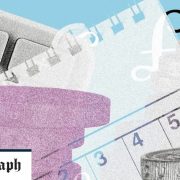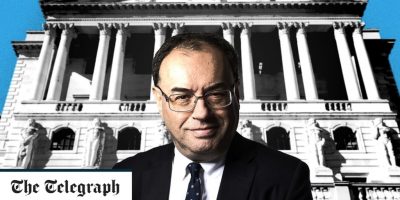Mike Riddell, manager of the Allianz Strategic Bond fund, enjoys going against the grain.
While investors have been piling into safer areas such as government bonds, hoping they will protect them from the worst of falls, he has been doing the opposite and buying up company debt despite it being more risky, especially in a recession.
Bond funds have generally outperformed those that invest in stocks over the past three months and Mr Riddell’s has been one of the best performers: the £1.4bn fund has returned 12.4pc since January.
The portfolio has returned 43pc since Mr Riddell took over in 2015 while global stocks have risen 57pc, so his investors have managed to get three quarters of the return for a fraction of the risk. He explains how he avoids the worst of the debt market and why he is already preparing for an economic recovery.
Who is the fund for?
We aim to diversify your investments by doing the opposite to what others in the market are doing. So the fund is good for those who hold stocks or property and want to protect themselves from falling prices.
How do you invest?
We take a broad view of what is happening in the global economy and find areas that look like good value. We try to be defensive and avoid losing money, so generally we look for low-risk debt from governments and high-quality companies with good credit ratings.
How have you made money during the pandemic?
We had prepared carefully. At the start of the year we saw there was a risk of recession, which would cause the prices of corporate bonds to come down, so we sold some of ours while prices were high.
We also moved a large proportion of the portfolio into government bonds, which are considered a safe anchor in times of recession.
What changes have you made since?
When the downturn hit, people panicked and started to sell corporate bonds. Debt from some very high-quality, low-risk companies was available very cheaply so we bought into firms such as Disney, Coca-Cola and McDonald’s.
People also started urgently buying up government bonds so we sold ours for a good price. We have gone from being almost 100pc invested in government bonds in January to having around 40pc of the fund in corporate bonds.
In focus: corporate bonds
Are you not concerned that the situation could worsen?
We think there is a strong chance the economy will rebound by the end of the year. Government bonds are expensive at the moment but if the economy recovers quickly people will sell and move back into stocks, so government bond prices will fall. If there is a rebound the value of corporate bonds will go up – that is what we are counting on.
There are some good indicators: the oil price has crashed and usually when that happens economic growth follows.
Are there any bonds you avoid?
We like to be able to move money around easily, so always have at least half the fund in liquid government bonds.
We are also very careful about who we lend to. We hold very few high-yield or ‘junk’ bonds. At the moment we are cautious about putting money into emerging markets. They look cheap but we are concerned about how they will cope with coronavirus and collapsing commodity prices.
What has been your best investment?
The past few weeks have been some of my most successful. The company bonds we bought in mid-March have done particularly well. We bought Disney 30-year bonds and they have gone up by 30pc in a month.
And your worst?
Last summer I thought emerging markets were looking very cheap. We invested in Argentina and Lebanon, but unfortunately the bonds got even cheaper. The value of our investment more than halved.
Do you have your own money invested in the fund?
The majority of my savings and pension are invested in the fund.
How are you paid?
I get a fixed base salary plus a bonus based on the fund’s performance over one and three years.
What would you have been if you weren’t a fund manager?
I would probably have been a mediocre musician – I’m a semi-retired pub-standard pianist – or maybe an athlete.
























Comments